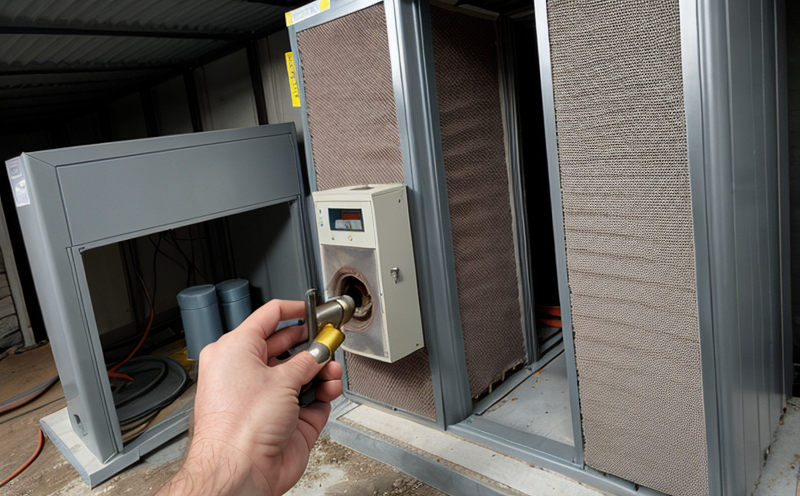Biocompatibility Sensitization Guinea Pig Test
The Biocompatibility Sensitization Guinea Pig Test is a critical procedure employed to evaluate whether materials or textiles can cause allergic reactions in the human body. This test is particularly important for industries that deal with medical devices, personal protective equipment (PPE), and other products that come into direct contact with skin. It is based on international standards such as ISO 10993-4:2018 and ASTM F739.
The test involves the application of a potential allergen to the guinea pig's ear, followed by an assessment for signs of sensitization after a period of observation. This process helps manufacturers identify materials that may cause allergic reactions in users, allowing them to make informed decisions about product design and material selection.
The Guinea Pig Test is one of several biocompatibility tests used to ensure the safety of medical devices and other products. It complements other testing methods like cytotoxicity studies and in vitro assays. The guinea pig test provides a more holistic understanding of how materials interact with biological systems, especially when dealing with materials that are not easily assessable through simpler tests.
The test is conducted under strict laboratory conditions to ensure accuracy and repeatability. Specimens must be prepared according to the specified protocols provided by the standard. This includes ensuring that the guinea pigs used in the testing meet specific health criteria, such as being free from certain diseases or infections that could affect the outcome of the test.
The apparatus used in this test typically includes incubators for maintaining controlled environmental conditions and microscopes for detailed examination of the test results. The entire process is meticulously documented to ensure compliance with regulatory requirements.
Acceptance criteria for a positive result include signs such as erythema, swelling, or other visible inflammatory responses at the site of application. A negative result would indicate that there are no significant adverse reactions observed during the testing period.
The results from this test play a crucial role in the overall biocompatibility assessment of new materials and products. They inform decisions regarding material composition, formulation changes, or even the development of entirely new product lines. By incorporating such tests into their quality control processes, companies can enhance consumer confidence and potentially avoid legal issues associated with product liability.
The Guinea Pig Test is a pivotal step in ensuring that materials used in medical devices are safe for human use. It provides valuable insights into the potential allergenic properties of various substances, helping to reduce risks associated with prolonged or repeated contact between users and these materials.
While this test remains essential due to its long-standing reputation and acceptance within regulatory frameworks, it is important to note that newer methodologies are continually being developed. These advancements aim at improving accuracy, reducing animal use, and enhancing efficiency without compromising on the integrity of the results.
Eurolab Advantages
Eurolab is committed to providing top-tier services that meet or exceed industry standards. Our team of experienced professionals ensures that each Guinea Pig Test conducted adheres strictly to international guidelines, ensuring reliability and consistency across all projects.
We offer several benefits tailored specifically for clients operating within the textile testing sector:
Competitive Advantage and Market Impact
Evaluating biocompatibility through rigorous testing like the Guinea Pig Test is crucial for maintaining a competitive edge in today's market. By ensuring that all products meet stringent safety standards, companies can build trust with consumers while avoiding costly recalls or legal battles.
For textile manufacturers and other related industries, compliance with these tests demonstrates a commitment to quality and safety, which translates into higher customer satisfaction and loyalty. It also opens doors to international markets where regulatory requirements are stringent and non-compliance could lead to exclusion from trade agreements.
The ability to consistently produce results that meet or exceed expectations helps establish Eurolab as a leader in the field of textile testing. Our reputation for reliability fosters long-term relationships with clients, encouraging repeat business and referrals.
Moreover, staying ahead of regulatory changes ensures that we are always ready to adapt our services to changing needs. This proactive approach not only maintains but enhances our competitive position within the industry.
Use Cases and Application Examples
The Guinea Pig Test finds application across numerous sectors where materials come into direct contact with human skin, including medical device manufacturing, pharmaceutical packaging, and personal care product development. Here are some specific use cases:





